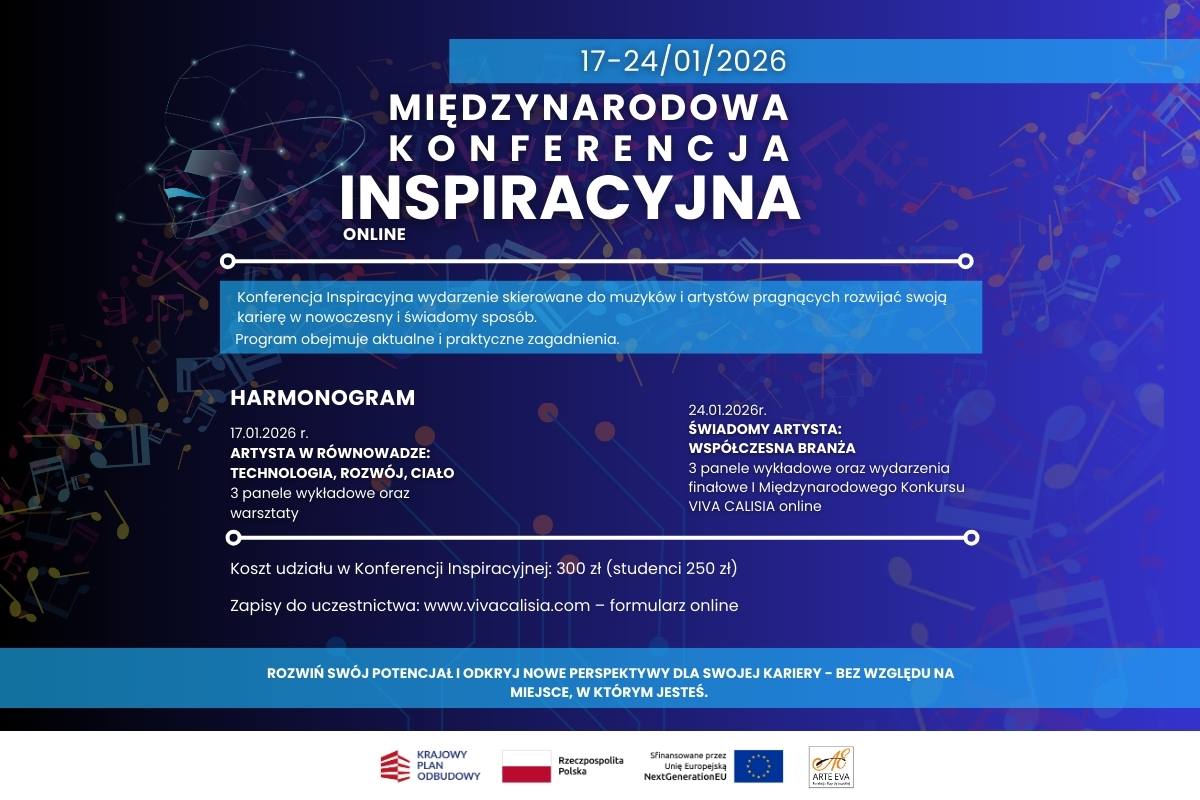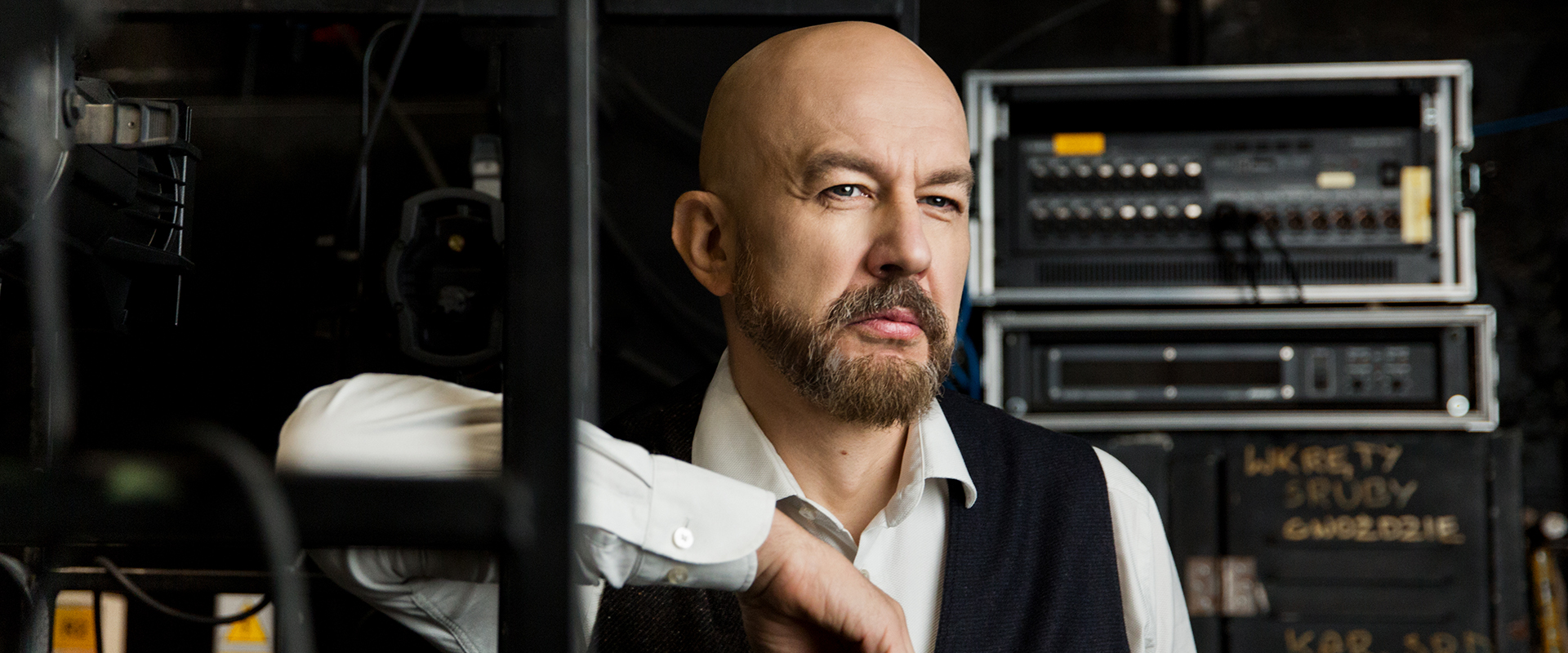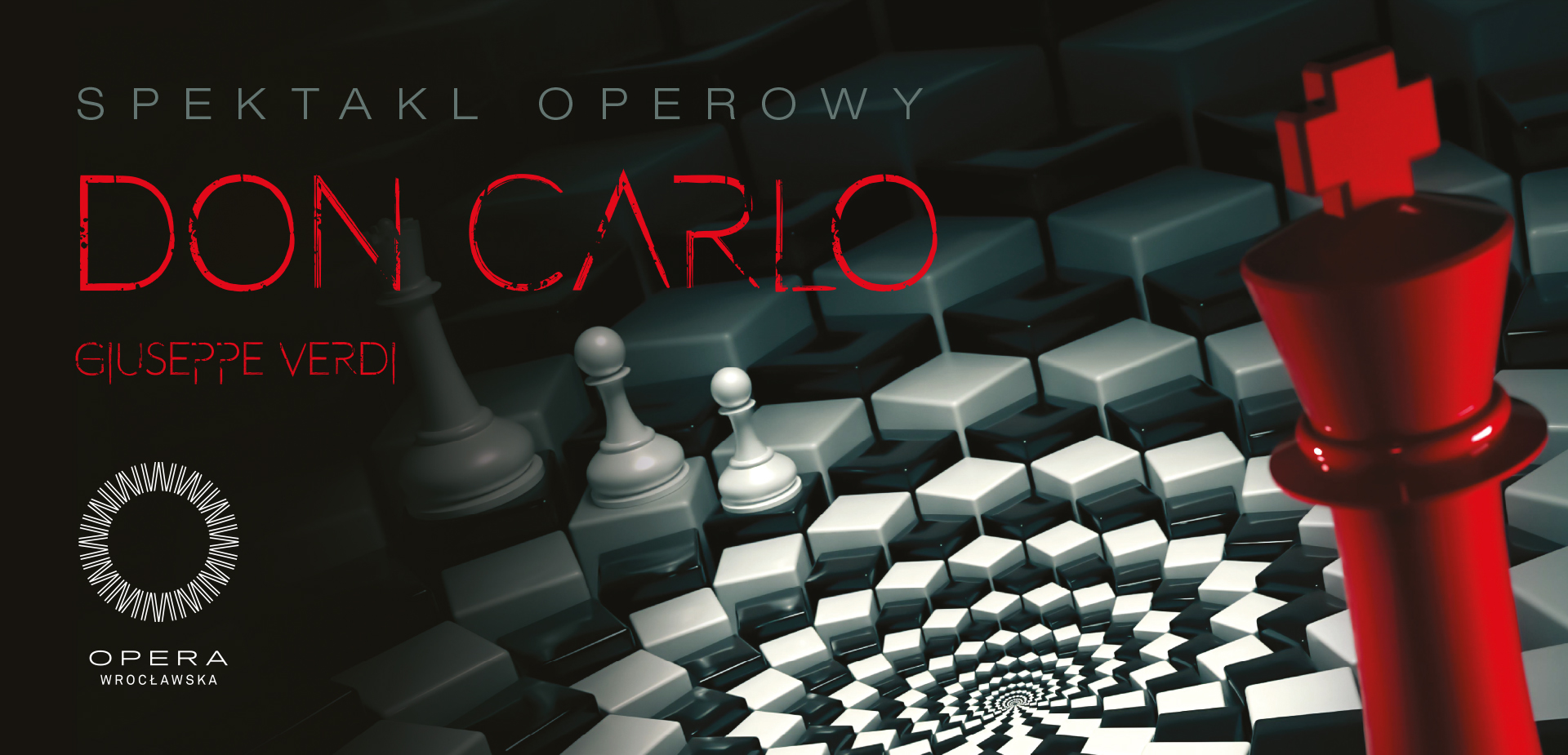 Some people are simply born to be kings — in conversation with bass Rafał Siwek
Some people are simply born to be kings — in conversation with bass Rafał Siwek
I drop in to a rehearsal for Giuseppe Verdi’s ”Don Carlo” in one of the rooms of the Wrocław Opera. Everyone — except the conductor — has their back turned to me. I quietly take a seat on the side, stepping into this enclosed world almost on tiptoe. I witness an intimate, musical rehearsal with Paweł Przytocki. The conductor is utterly professional yet warm, holding everything in his hand without clenching it in a gesture of control. Calm and focused. I scan the rehearsal space. Several soloists sit at music stands, leaning over their scores, penciling in notes. Over a month to go until the premiere of ”Don Carlo”, yet it feels like everybody knows their place on the operatic chessboard.
One figure stands out — bass Rafał Siwek. Not by volume or gesture. He is open, joking with colleagues, smiling with a lightness that contrasts sharply with King Philip II, the role he is portraying. When I ask for an interview, he finds time a few moments later. As soon as he starts speaking, his voice fills the space. And suddenly, I am transported to Spain. I feel like I am listening to the best audiobook, read by someone who knows this 16th-century story not from a book — but from life.
This year, Rafał Siwek celebrates 25 years since his stage debut — in a Verdi opera as well. It was here at the Wrocław Opera in 2000, where he first performed the role of Ferrando in ”Il Trovatore,” conducted by Ewa Michnik and directed by Robert Skolmowski. That production was recorded and became the artist’s debut album. A quarter century later, the singer returns to Wrocław as a renowned master of Verdi’s repertoire, with a portfolio of roles sung in the world’s most prestigious opera houses.
Philip isn’t just any role — he begins, looking just past my shoulder. It is a dream. And not just for a bass. Even Plácido Domingo dreams of singing Philip. I was lucky to do it for the first time in 2006 at Teatro Regio in Turin. He says this so casually, as if Turin happened yesterday. Back then, I was performing with Ferruccio Furlanetto, the greatest Philip of that era. I watched him closely as I took on one of the most beautiful bass roles for the first time. Over time, I began discovering this role anew, with each new production, in different theaters. Every one of them left something in me. Today, the Spanish king feels closer to me than ever.
This character has matured alongside me — he continues. Each time, I add something new, noticing nuances I hadn’t seen before. Philip II is a symbol of absolute power on the brink of collapse. A historical figure — the King of Spain, ruler of half the world, defender of Catholicism. In Verdi’s opera, he’s shown as a man torn between duty and emotion, between the throne and his conscience. That’s what makes this role one of the deepest bass portrayals in all of opera.
Philip is a ruler — but also a lonely man — Siwek reflects thoughtfully. He holds immense power, yet struggles to find his place in the world around him. Betrayed, unloved, suspicious. He’s under the authority of the Church, and even his own son, Don Carlos, is against him. The king may be the most important piece on the chessboard — but he’s not the strongest. He can be checkmated or cornered.
”Don Carlo” is not just a political opera — it has an existential dimension. It is a story about a system that destroys the individual, even at the top. Love and religion, betrayal and faith are interwoven in a score filled with dramatic contrasts and inner tension. It is also one of Verdi’s most monumental and personal works. Commissioned by the Paris Opera, it was repeatedly revised after its 1867 premiere. Today, it exists in two languages (French and Italian), two lengths (five and four acts), and under two titles (”Don Carlos” and ”Don Carlo”). At the Wrocław Opera, we will see the Italian version, prepared for La Scala in Milan — where the drama is driven not by action, but by the deep psychological portraits of the characters.
The libretto, based on Friedrich Schiller’s drama, draws from actual events at the Spanish court. We have the historical Don Carlos, son of Philip II of Habsburg, and Elisabeth de Valois, who became queen not out of love, but political necessity. Don Carlos, torn between loyalty to his father and forbidden love for his stepmother, ultimately falls victim to political intrigue and betrayal. Verdi does not portray monarchy as a model of order, but as a machine in which even the king is a pawn. And perhaps that’s why this opera remains so affecting — it is a story of Europe divided by ideologies, and of the individual trying to preserve dignity amid it all.
Philip II does not sing about power — he sings about losing it. That is why his aria ”Ella giammai m’amò” is considered one of the most difficult in the entire bass repertoire. It requires not only a powerful voice but precision, tenderness, and… courage. Even the best technique is not enough to sing this aria convincingly. It is a moment when the operatic monarch must remove his crown and bare his heart. For many singers — and listeners — this aria is the essence of Verdi’s depth: pure drama in its most musical form. In this role, you have to capture every nuance — Siwek adds. Every relationship—with Elisabeth, with Carlos, with Posa, with the Inquisitor. Because Philip, though powerful, is deeply torn inside.
The Wrocław staging makes this strikingly clear. The set becomes a chessboard, and the characters — pieces, he laughs. I am the king, but I am not playing alone. My moves depend on the actions of others. Sometimes, even the king has no choice. Sometimes you are forced to make a move — and then watch yourself lose. He does not ask if it is fair. Because Philip does not ask. Philip endures.
When I ask what makes this production special, he doesn’t hesitate: Each one is different, because I am a different Philip each time. But here, everything is refined. He emphasizes that every detail matters. The set design, lighting, and projections create a world that reminds you the stakes are high. Michał Znaniecki pays attention to every detail, he says with admiration. I have worked with him before and I know that everything comes together on stage. The audience will see not just an opera — they will see the story of a man playing a game without knowing all the rules.
I leave the rehearsal as Rafał Siwek returns to his score and finds his place on the operatic chessboard — on stage and in history. Philip II here is not just a role — it is a space where experience, voice, and humanity meet. There is no theatricality or pathos — just a rare kind of truth that resonates in every glance, every note. Siwek does not play the king — he becomes him. And in that quiet moment between rehearsal and premiere, you glimpse something more than opera. You see a man who, for 25 years, has not just honed his craft, but matured with the role. And now — as if effortlessly — he brings to the stage something you cannot notate in a score: presence.
Who? What? Where? When?
Giuseppe Verdi ”Don Carlo”
Premiere: May 24, 2025
Performances: May 25, 27, 30, 31
Venue: Wrocław Opera House





